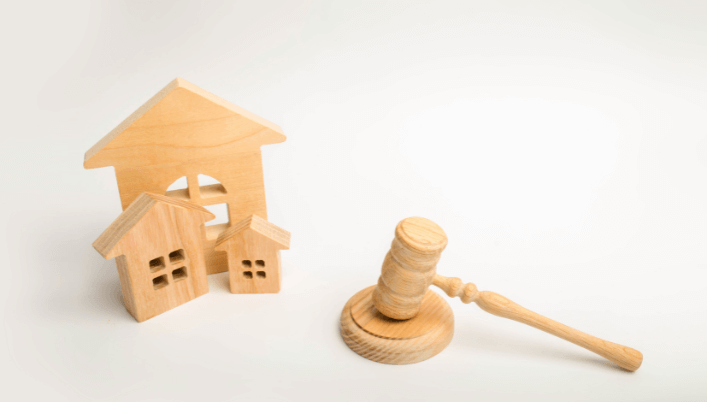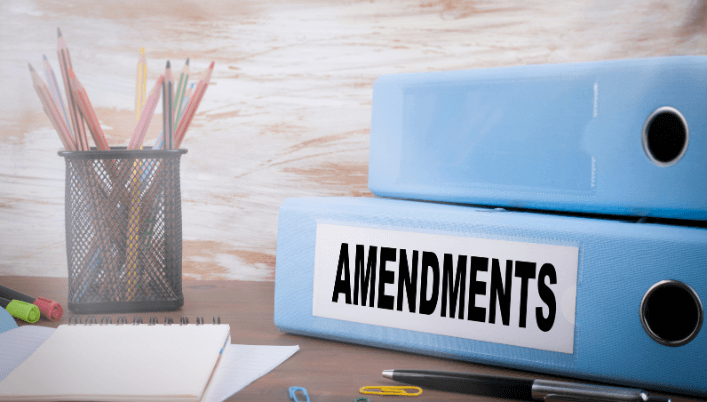
Introduction
Click here to access Private Residential Property Transactions
In Singapore, when it comes to property transactions, one crucial legal document that is often lodged is the URA Caveat.
The Urban Redevelopment Authority (URA) Caveat is a legal document lodged with the Singapore Land Authority (SLA) to protect the interests of property buyers.
It assures that the property is not subject to undisclosed interests or transactions.
What is a URA Caveat?
A URA Caveat is a legal document lodged through the URA Caveat Portal indicating an interest or claim over a property.
It serves as a notice to the public that a particular parcel is no longer available for purchase or transfer without the consent of the person who lodged the caveat.
It safeguards the legal interest in the property and helps prevent unscrupulous transactions.
Importance of URA Caveats in property transactions
The importance of URA Caveats in property transactions cannot be overstated.
They provide peace of mind to property buyers by ensuring transparency and protecting their interests.
By lodging a caveat, buyers can search for existing caveats on a property before purchasing to verify its status and ownership.
This helps prevent potential issues or complications in the future.
The URA Caveat serves as a protection mechanism for property buyers, allowing them confidence in their investments.
It establishes a legal interest in the property, assuring buyers that their rights will be upheld.
The primary purpose of a caveat is to provide security and assurance in private property transactions.
In conclusion, understanding the concept of URA Caveats and their importance in property transactions is crucial for buyers and sellers.
It is recommended that property buyers lodge a caveat to protect their interests and ensure a smooth and secure transaction.
By subscribing to the Real Estate Information System (REALIS), buyers can stay informed about any changes or new caveats lodged within the last 60 months, further enhancing their knowledge and decision-making process.
Key Takeaways
- What is a URA Caveat?
- A URA Caveat is a legal document lodged to indicate an interest or claim over a property.
- It prevents property transactions without the consent of the caveator.
- Importance of URA Caveats
- URA Caveats provide transparency and protect the interests of property buyers.
- Buyers can verify a property’s status and ownership before purchase.
- How to Lodge a URA Caveat
- The process involves filling a form and submitting it to the Singapore Land Authority (SLA).
- Specific property and buyer details are required for lodging.
- Types of Transactions Requiring Caveats
- Caveats are necessary for private residential property transactions.
- This includes options to purchase and sales and purchase agreements.
- Why Search for URA Caveats
- Property buyers should search for caveats to gather information about previous property transactions.
- It helps assess property prices and avoid potential issues.
- Process of Searching for URA Caveats
- The search can be done online through the URA’s website.
- Updates are scheduled for every Tuesday and Friday.
- Benefits of Lodging a URA Caveat
- Caveats protect property buyers’ interests and provide legal security.
- They ensure compliance with property transaction laws.
- URA Caveats and Private Property Transactions
- URA Caveats play a crucial role in private property transactions.
- Understanding their implications is vital for buyers.
- URA Caveats and Types of Sales
- Different types of sales are listed in URA Caveats, including options to purchase and sales agreements.
- These reflect the diversity of property transactions.
- Removing or Amending a URA Caveat
- Removal or amendment involves following proper legal procedures.
- Reasons for doing so include expiration, change in legal interest, or no longer applicable purpose.
Understanding URA Caveats

Definition and purpose of a caveat
A URA caveat is a legal document lodged by individuals or organizations to protect their legal interest in a property.
It is prudent to ensure that the property is not transacted without their knowledge or consent.
Before entering any property transaction, seeking legal advice and considering lodging a caveat is advisable.
How to lodge a URA caveat
Lodging a URA caveat involves a simple process.
The property buyer must complete a form and apply to the Singapore Land Authority (SLA).
The state requires specific details such as the property address, the buyer’s particulars, and the nature of the claimed legal interest.
The caveat will be registered once the application is submitted, and the buyer will have legal protection over the property.
Types of transactions that require a caveat to be lodged
Various types of property transactions require the lodgment of a caveat.
These include private residential property transactions, such as selling and purchasing private properties.
The caveat can also be lodged in cases where an Option to Purchase (OTP) has been granted or a Sales and Purchase Agreement (SPA) has been signed.
It is essential to consult the government website and refer to the Land Titles Act to determine the specific transactions that necessitate a URA caveat.
In conclusion, a URA caveat is an important legal document that provides protection and safeguards the interests of property buyers.
Property buyers can ensure a secure transaction process by understanding the definition, purpose, and procedure for lodging a URA caveat.
Search for URA Caveats

Why property buyers should search for existing caveats
When purchasing a property, property buyers must thoroughly search for existing caveats.
These caveats are legal documents lodged by purchasers that can provide valuable information about previous property transactions.
By searching for existing caveats, property buyers can find out how much a property has been transacted for in the past, helping them determine if the current asking price is reasonable.
It also allows them to identify potential issues or disputes during the property purchase process.
Process of searching for URA caveats
Searching for URA caveats is a simple process that can be done online through the URA’s website.
The URA provides an online portal where property buyers can search for caveats.
This portal is a valuable tool for research, giving property market information and allowing property buyers to stay updated on recent transactions and market trends.
The URA’s website has scheduled updates that fall every Tuesday and Friday, ensuring that property buyers have access to the most current and accurate information.
Online resources for conducting a caveat search
In addition to the URA’s website, property buyers can utilize the Real Estate Information System (REALIS) for their caveat search.
REALIS offers a query service that allows users to search for caveats lodged within the last 60 months.
It provides comprehensive data on private residential property transactions, giving property buyers a more in-depth understanding of the market.
Property buyers can subscribe to REALIS to receive regular updates and access this valuable resource.
Using these online resources and conducting a thorough search for URA caveats, property buyers can make more informed decisions regarding their property purchase.
They can have a clearer understanding of the market, assess property prices, and avoid any potential issues or disputes that may arise during the transaction process.
Benefits of Lodging a URA Caveat

Protection for property buyers
Regarding property transactions, protection is crucial for both buyers and sellers.
A URA caveat protects property buyers by ensuring that their interests in the property are secured.
This is especially important for unsuspecting buyers unaware of any existing claims or disputes over the property.
Potential home buyers can search for caveats lodged against a property to verify its legal status before purchasing.
This protects them from any possible legal complications or financial losses.
Securing interests in private residential properties
For buyers looking to invest in private residential properties, lodging a URA caveat is essential.
It gives them a legal interest in the property and prevents further transactions from occurring without their knowledge.
This is particularly important during private residential property transactions where multiple parties may be involved, such as an option to purchase or a sales and purchase agreement.
Buyers can ensure that their interests are protected throughout the transaction process by lodging a URA caveat.
Ensuring legal compliance in property transactions
Lodging a URA caveat is not only beneficial for buyers but also ensures legal compliance in property transactions.
It acts as proof that the purchaser has legally claimed the property and provides transparency in the transaction process.
This is important for buyers and sellers as it ensures that all parties adhere to relevant laws and regulations.
Property buyers can verify the existence of a URA caveat through the government website or by consulting a conveyancing lawyer to ensure a smooth and legally compliant transaction.
Overall, lodging a URA caveat offers numerous benefits for property buyers, including protection, securing interests, and ensuring legal compliance.
It is a crucial step in the property transaction process to safeguard the interests of all parties involved.
URA Caveats and Private Property Transactions

In the realm of property transactions in Singapore, there exists a crucial element known as URA caveats.
These caveats, lodged with the Urban Redevelopment Authority (URA), are significant in ensuring transparency and legal protection for property buyers and sellers.
How URA caveats affect private property transactions
When a URA caveat is lodged, someone has a legal interest in the property.
This caveat acts as an exercise of caution, notifying potential buyers of an existing claim or interest in the property.
Understanding the implications of a URA caveat is crucial for property buyers as it directly impacts the sale and purchase process.
Conducting a thorough search for caveats before proceeding with a transaction is essential to ensure a smooth and legally sound transaction.
Role of URA in overseeing caveat-related matters
As the overseeing authority, URA plays a vital role in safeguarding the interests of property buyers and sellers.
They ensure that URA caveat-related matters are appropriately handled and provide guidance on the purpose and implications of caveats.
URA’s involvement assures property buyers that their transactions are conducted in a regulated and fair manner.
Recent updates and changes in URA caveat regulations
Recent updates and changes in URA caveat regulations aim to enhance transparency and streamline the process of property transactions.
These changes are implemented to provide a clearer understanding of the legal aspects surrounding caveats and ensure a smoother experience for all parties involved.
Property buyers must stay informed about these updates to make informed decisions during their property transactions.
Understanding URA caveats is essential for anyone involved in private property transactions in Singapore.
Knowledge of URA’s oversight and recent regulation changes will contribute to a seamless and legally sound property buying or selling experience.
URA Caveats and Types of Sales

Different Types of Sales in URA Caveat
In the URA Caveat, different types of sales are listed under the property type field.
These different types of sales represent the various types of property transactions that have taken place.
One common type of sale is the exercise of an option to purchase.
This occurs when a buyer exercises their right to buy a property within a specified period as outlined in the opportunity to purchase agreement.
The sales and purchase agreement is another type of sale listed in the URA Caveat.
This is a legally binding contract between the buyer and seller, outlining the terms and conditions of the property transaction.
These different types of sales provide insights into the nature of property transactions and the market’s diversity of buyers and sellers.
Private Residential Property Transactions
Private residential property transactions refer to the buying and selling private properties for residential purposes.
These transactions involve personal property projects typically consisting of condominiums, landed houses, or apartments.
During private residential property transactions, buyers usually submit legal documents such as exercise options to purchase, which allow them a specific period to decide whether to proceed with the purchase.
Once the decision is made, a sales and purchase agreement is executed between the buyer and the seller, formalizing the transaction and outlining the terms and conditions.
These agreements play a crucial role in protecting the rights and interests of both parties involved in the transaction.
Removing or Amending a URA Caveat

Process of removing or amending a lodged caveat
The process of removing or amending a lodged caveat involves making changes to the legal interest in a property.
A caveat is a notice lodged by an individual or entity to protect their legal interest in a property.
It can be placed for various reasons, such as to prevent the property from being sold or mortgaged without their knowledge.
However, there may be circumstances where the caveat needs to be removed or amended.
This could be due to an agreement between the parties involved, a change in circumstances, or the resolution of a legal dispute.
To remove or amend a lodged caveat, the interested party must follow the process outlined by the relevant jurisdiction.
This typically involves providing written notice to the caveator and applying to the appropriate authority, such as a land registry office.
The transaction price and other relevant information may become public during this process.
It is essential to adhere to the proper legal procedures to ensure a smooth and valid removal or amendment of a lodged caveat.
Reasons for removing or amending a URA Caveat
Removing or amending a URA (Urban Redevelopment Authority) caveat may be necessary for various reasons.
One reason could be the expiration or extension of the caveat’s validity period.
Caveats are typically lodged for a specific duration, and if this period is about to expire, the property owner might need to consider extending or removing it.
Another reason for amendment or removal is when there is a change in the legal interest in the property.
This can occur due to a sale or transfer of ownership, where the caveat needs to be updated to reflect the new legal entity or individual holding the interest.
Lastly, caveats are lodged to protect the interests of parties involved in a property transaction, so if the intended purpose of the caveat is no longer applicable, it may be necessary to remove or amend it accordingly.
URA Caveat and Government Authorities
Role of URA in Caveat Lodgement
The Urban Redevelopment Authority (URA) plays a vital role in caveat lodgement in Singapore.
When purchasing a property, it is common practice for buyers to lodge a caveat with the Singapore Land Authority (SLA) as a form of legal protection.
A caveat is a legal document that notifies the public that an interest in the property has been claimed.
The URA’s role in caveat lodgement encompasses ensuring that the necessary planning restrictions and land use regulations are adhered to.
By vetting and approving applications for caveats, the URA helps maintain the integrity and transparency of the property market, ensuring that purchasers’ rights and interests are protected.
This ensures that potential buyers are equipped with accurate information regarding the property before proceeding with a transaction.
Singapore Land Authority (SLA) and Caveats
The Singapore Land Authority (SLA) is a statutory board under the Ministry of Law in Singapore.
It is responsible for managing and maintaining the state land and property information.
One of the essential functions carried out by the SLA is the management of caveats.
Caveats are legal documents lodged by purchasers with the SLA to protect their interest in a property.
These caveats prevent any subsequent transactions from taking place without the knowledge and consent of the caveator.
The SLA provides a user-friendly platform on its government website for lodging and managing caveats, ensuring transparency and efficiency in real estate transactions in Singapore.
Conclusion
URA Caveat Singapore Conclusion
In conclusion, the URA Caveat Singapore is a valuable tool that can be used to research and buy properties in Singapore.
The caveat system ensures that all property transactions are transparent and recorded, providing buyers with important information about the property they are interested in.
Whether you are a first-time buyer or an experienced investor, utilizing the URA Caveat Singapore can help you make informed decisions.
The primary purpose of the caveat is to protect the interests of property buyers.
Buyers register their legal interest in the property by lodging a caveat and ensuring their rights are recognized.
The caveat notice includes details of the buyer, the property, and other relevant information.
This information is updated regularly and is based on caveats lodged by purchasers with the Singapore Land Authority.
One of the benefits of the URA Caveat Singapore is that it provides access to transaction data.
This data includes new sale transactions as well as historical property transactions.
It allows buyers to understand the market trends, prices, and demand in different areas and postal districts.
This information can be helpful when negotiating prices or making investment decisions.
It is important to note that purchasers usually lodge a caveat after the option to purchase is exercised, or the sales and purchase agreement is signed.
However, there may be some gaps in the data set due to the timing of when caveats are lodged and when the information is updated.
Nevertheless, the URA Caveat Singapore remains a valuable resource for property buyers.
To access the URA Caveat Singapore, individuals can subscribe to Realis, an e-service the Urban Redevelopment Authority provides.
Realis includes access to comprehensive and up-to-date information on property transactions.
Users can search for specific properties, view transaction histories, and obtain detailed information about property ownership and prices.
In conclusion, the URA Caveat Singapore is a powerful tool for anyone looking to buy or research property in Singapore.
It provides essential information about transacted properties, market trends, and property ownership.
By utilizing the URA Caveat Singapore, buyers can confidently make informed decisions and navigate the real estate market.
Frequently Asked Questions
What is a caveat?
A caveat is a legal notice that can be lodged on a property to protect the interests of the person installing it.
Why would I need to lodge a caveat?
There are several reasons you should lodge a caveat, such as to protect your legal interest in a property you’re buying, selling, or have an interest in.
Is it mandatory to lodge a caveat?
No, it is not mandatory to lodge a caveat.
However, it is recommended to do so if you want to protect your legal interest in a property.
How can I use a caveat to research property?
You can use a caveat to research property transactions by searching for caveats lodged on specific properties or by searching for property transactions with caveats lodged.
When should I lodge a caveat?
You should lodge a caveat before you buy or sell a property, as this will ensure that your legal interest in the property is registered.
How do I lodge a caveat?
To lodge a caveat, you can do so through the URA’s portal or a solicitor.
What information do I need to lodge a caveat?
To lodge a caveat, you must provide details such as the property address, the date of sale or the date the caveat is exercised, and the selling price.
How long does a caveat last?
A caveat will last until it is withdrawn by the person who lodged it or until the court removes it.
What does a caveat protect me from?
A caveat is meant to protect your legal interest in a property.
It notifies potential buyers of an existing legal claim on the property and prevents them from transacting without your knowledge.
Can I sell my property if a caveat is lodged on it?
You can sell your property even if a caveat is lodged on it.
However, the caveat must be dealt with during the property sale process.












